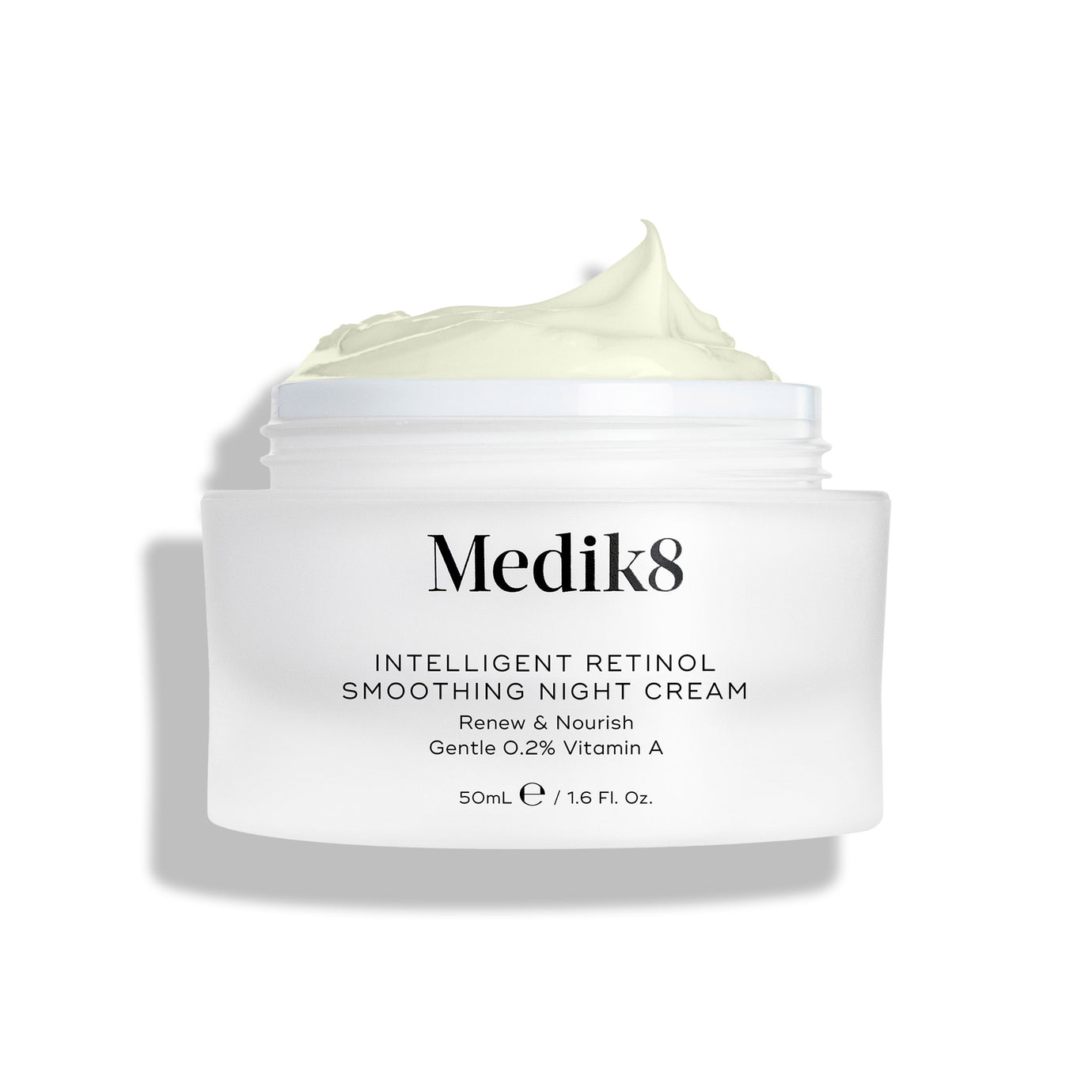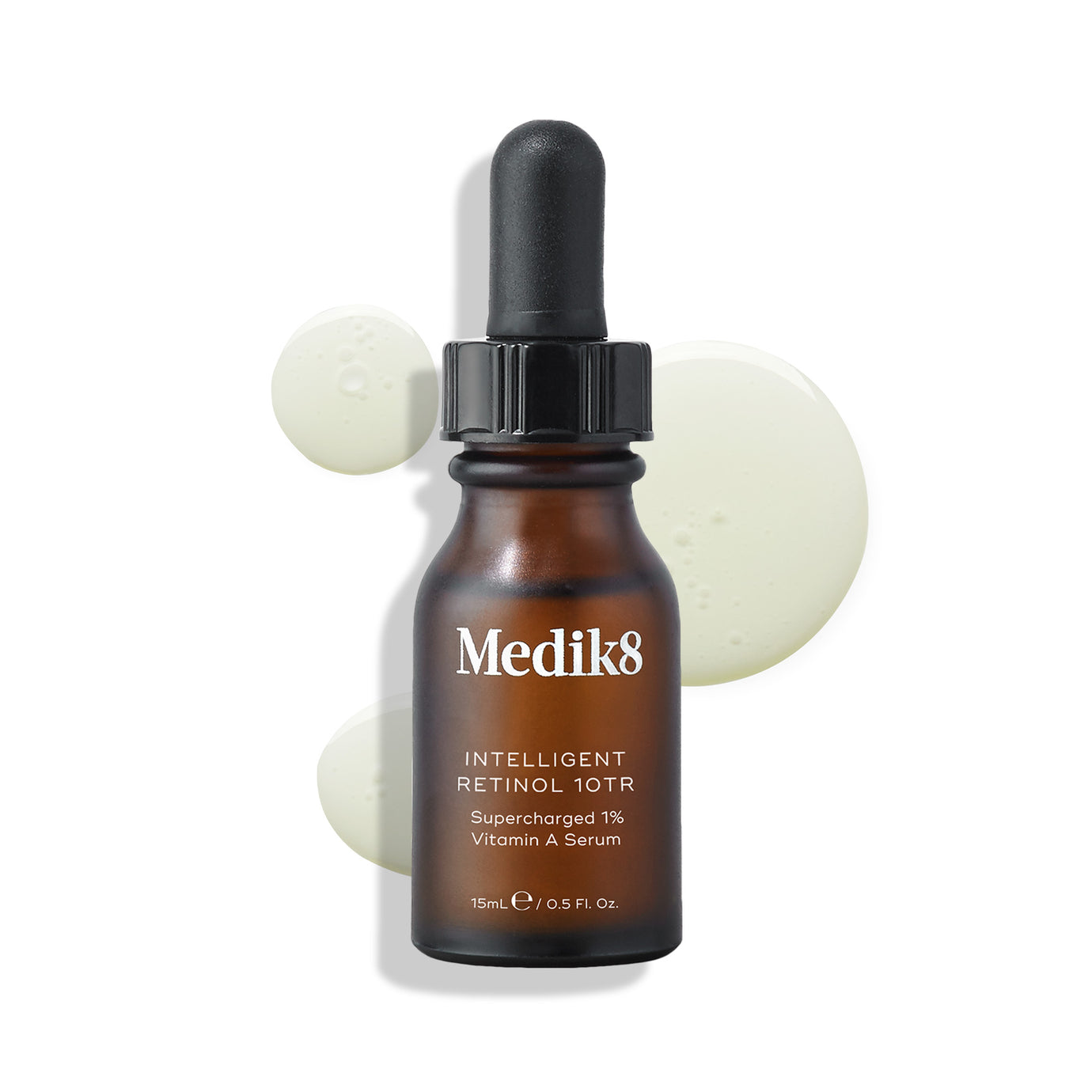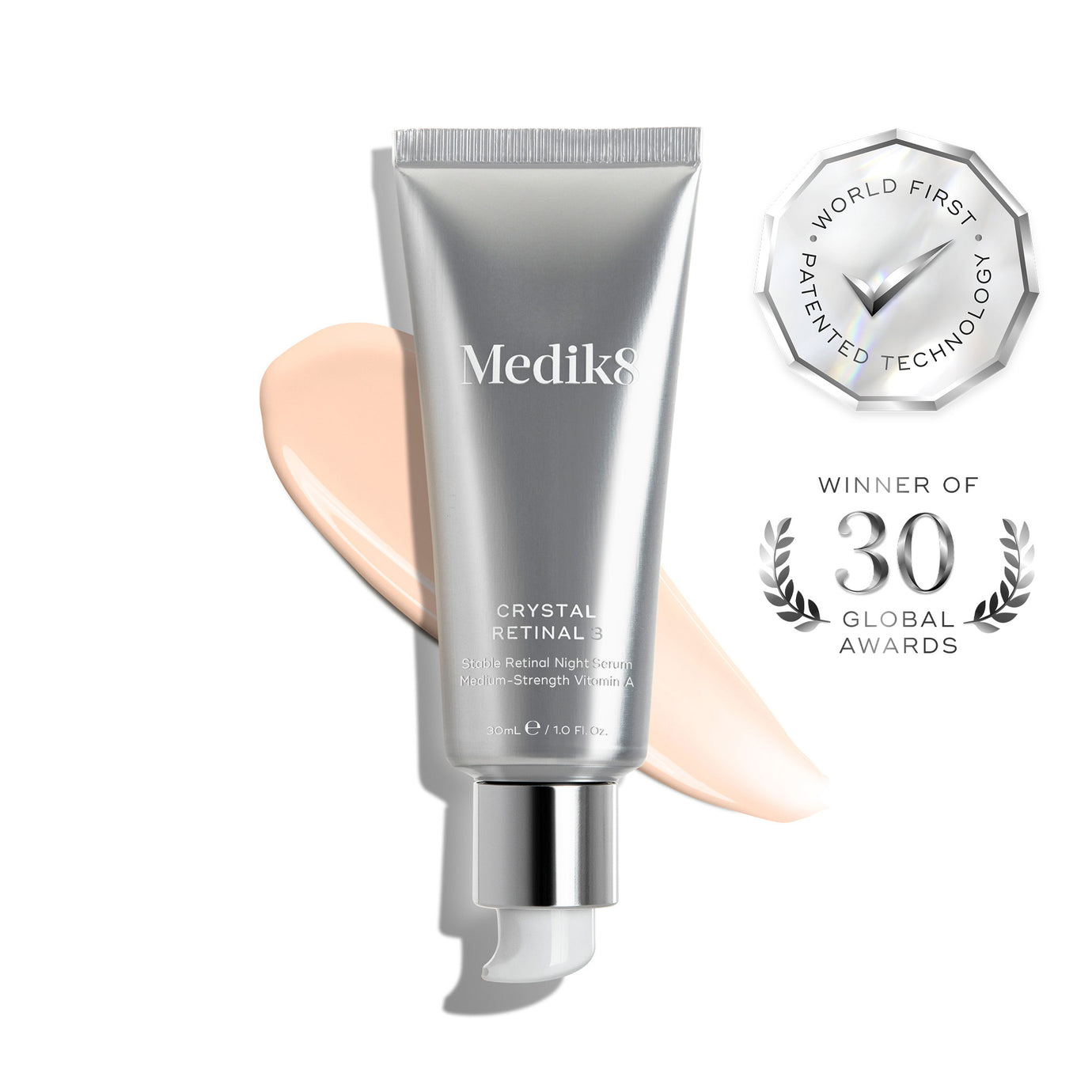What You Need to Know About Retinol and Dry Skin
Written by: Heleayner Davies
Updated: 11 April 2024
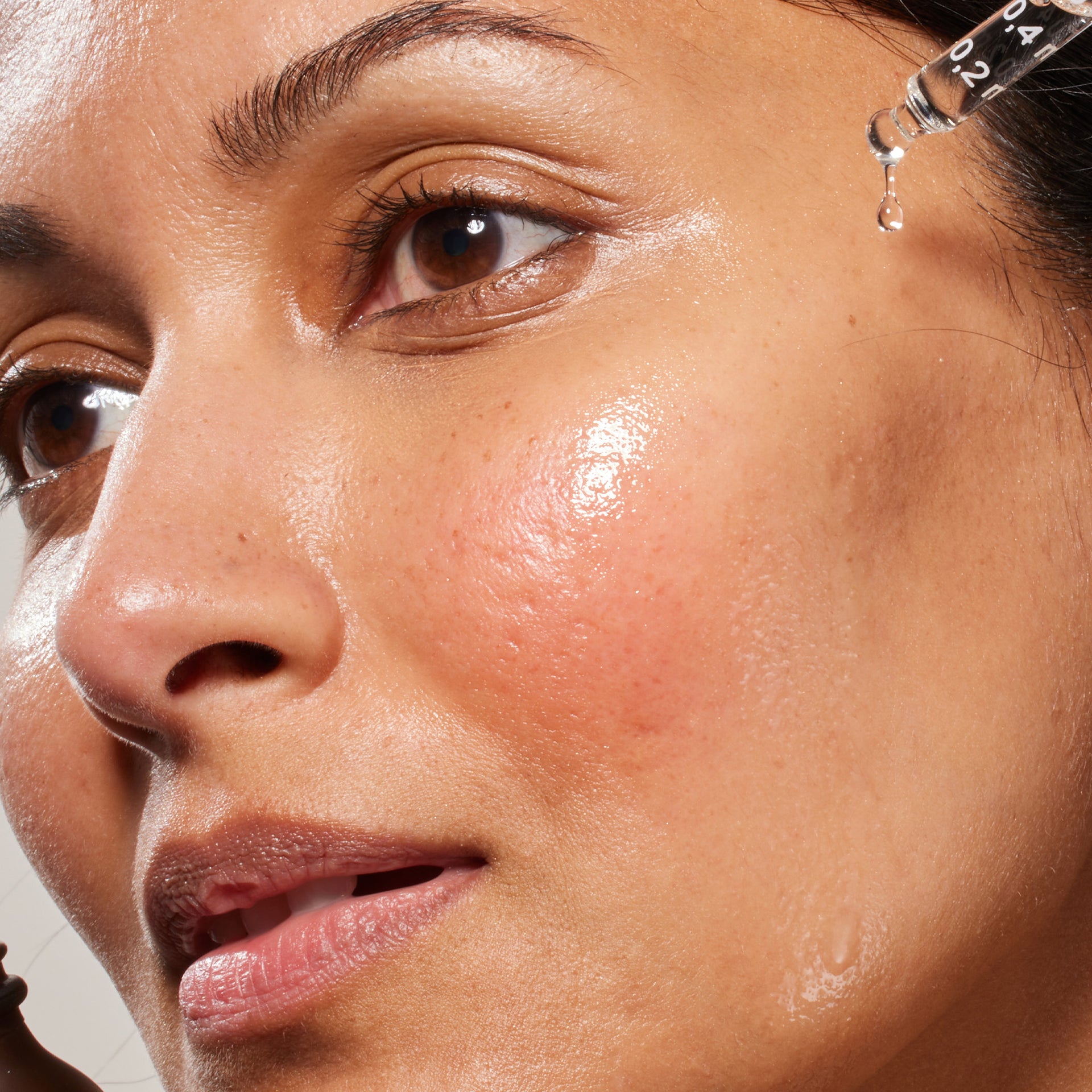
There’s no doubt that retinol (and all other vitamin A derivatives) have incredible age-defying benefits. But, due to its potency, it does have the potential to cause dryness and irritation - especially for those who have dry or sensitive skin. Not to be confused with dehydrated skin (a temporary skin condition), dry skin is a skin type that means that your skin doesn’t produce enough oil to keep it moisturised - resulting in a dull, uneven appearance that can feel flaky and rough to the touch.
However, if you have a dry skin type, that doesn’t necessarily mean that you have to completely avoid using vitamin A altogether. Despite popular belief, retinol can actually benefit those with drier skin types as it can help to improve the appearance of skin texture, brightness and firmness.
Keep on reading to discover our expert tips on how to use retinol on dry skin types for a visibly brighter, smoother and more youthful-looking complexion overall.
Is it safe to use retinoids on dry skin?
Yes, it is completely safe to use retinoids (vitamin A) on dry skin types, just as long as you ensure that you are using it correctly. At Medik8, we use 3 types of retinoids - retinol, retinaldehyde (retinal) and retinyl retinoate. If you’re completely new to retinoids, it is important that you begin by using a low concentration of vitamin A, as retinoids may cause your skin to experience some mild irritation, redness or exacerbate symptoms associated with drier skin types such as flaking and roughness - especially if you apply it too frequently or use too much.
Low and slow is our advice. Begin by using it twice a week for the first 2 weeks, every other night for the next 2 weeks, then every night. This way, you are allowing your skin to gradually become used to the vitamin A molecule. For those with dry skin, we recommend that you use a nourishing moisturiser such as Advanced Night Restore, which has been expertly designed to be used after vitamin A and contains hydrating ingredients including ceramides and our Midnight Antioxidant Complex to intensely nourish, restore and repair your skin while you sleep.
Potential challenges
Retinoids may have the potential to cause sensitivity and dryness when applied to skin that isn’t used to it. Therefore, we always recommend to introduce retinoid products into your skincare routine slowly; gradually increasing the strength over time. This helps to reduce the potential for irritation, and allows your skin to naturally adapt to the molecule.
At Medik8, all of our retinoid formulas have been carefully formulated to reduce the potential for any discomfort, irritation and sensitivity.
Our Time Release and stabilisation technologies ensure that retinol or retinal is gradually released into the skin throughout the night, for minimal irritation while prolonging the effects overnight. Available in a variety of progressive strengths, whether you’re a beginner, expert or advanced vitamin A user, our groundbreaking formulations allow you to work your way up for progressive visible youth-renewing results.
Retinoids can increase your skin’s sensitivity to the sun’s harmful UV rays. Therefore, it is important to remember to always use sunscreen every morning after vitamin A use. The sun itself is also one of the main causes of visible signs of ageing. Using one of our advanced sunscreen formulations helps to preserve your vitamin A results with powerful, all-encompassing sun protection.
9 tips on how to use retinol for dry skin
As with any new skincare ingredient or product, it’s important that you introduce it into your regime slowly to avoid overwhelming your skin and potentially causing irritation. If you’re a vitamin A beginner, start by using it twice a week for the first 2 weeks, every other night for the next 2 weeks, then every night.
1. Build up your tolerance
As with any new skincare ingredient or product, it’s important that you introduce it into your regime slowly to avoid overwhelming your skin and potentially causing irritation. If you’re a vitamin A beginner, start by using it twice a week for the first 2 weeks, every other night for the next 2 weeks, then every night.
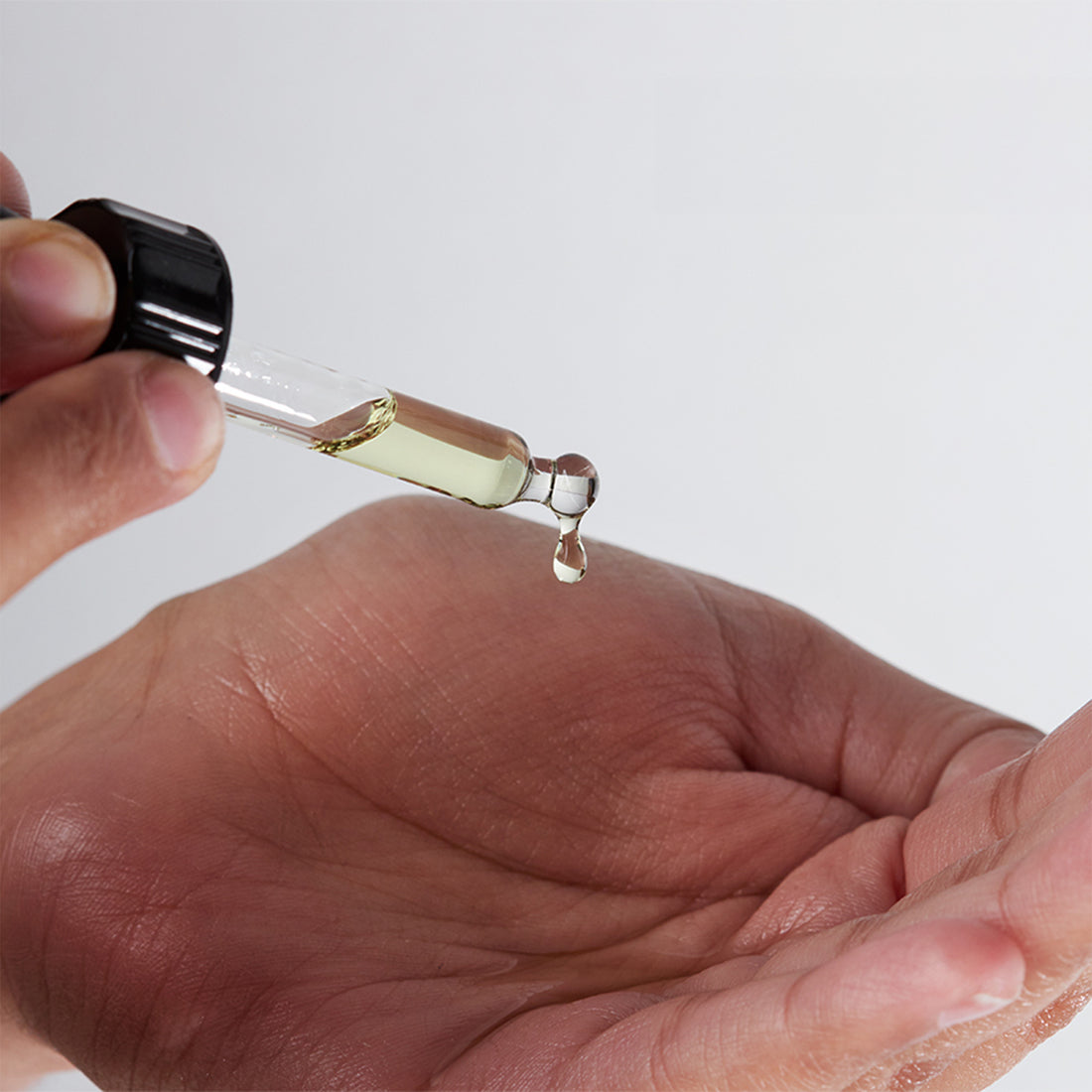
2. Avoid additional sensitising skincare products
While using vitamin A, it is important to avoid using other skincare products that also contain vitamin A at the same time, as this could trigger sensitivity and irritation. Additionally, if your skin is very sensitive, we recommend not using exfoliating toners that contain potent exfoliating ingredients such as salicylic acid and glycolic acid, as vitamin A already has skin renewing benefits and you could be overloading your skin with too many exfoliating ingredients.
If your skin is dry and dehydrated, you can use hydrating ingredients such as hyaluronic acid alongside vitamin A to enhance your skin’s hydration levels for a radiant, healthy and plumper-looking complexion. By keeping the skin hydrated and moisturised, hyaluronic acid helps your skin to be able to better tolerate vitamin A which helps to minimise any dryness, flaking or sensitivity that is often associated when you first begin using it.
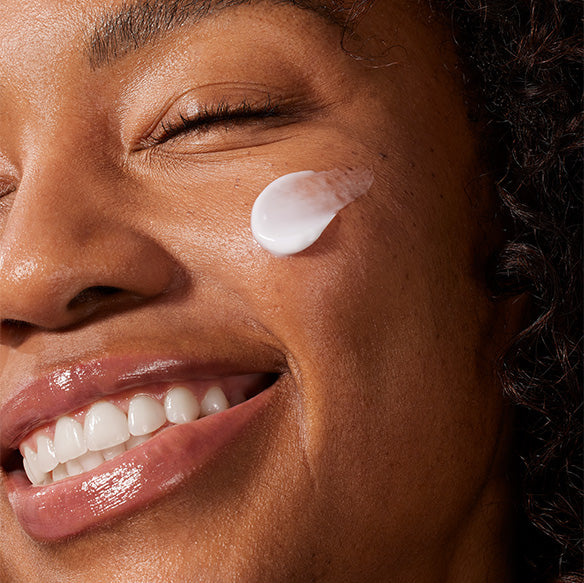
3. Don’t skimp on moisturiser
As mentioned above, vitamin A may cause your skin to become dry and dehydrated when you first introduce it into your skincare routine. To help keep your skin feeling hydrated and nourished, we always recommend that you follow with a nourishing moisturiser such as our best-selling Advanced Night Restore, which has been expertly developed to be used after vitamin A.
4. Choose your retinol product with care
Nowadays, there are a lot of retinol products to choose from and not all formulas are created equal, which can make it difficult to find the right product for you. At Medik8, we always recommend that everyone uses retinal instead of retinol as it is a more potent form of vitamin A for faster and better visible results (retinal acts 11x faster than retinol[1]). Although it is closer to the active form of vitamin A (retinoic acid), retinal is proven to have the same low irritation potential as retinol - meaning that you can have a more powerful product without compromising on your skin’s comfort. This therefore makes retinal a better option for those with sensitive skin.
Our groundbreaking Crystal Retinal serum reinvented retinoid skincare. Formulated with our patented retinal stabilisation technology to ensure optimal potency for visible age-defying results, all while remaining gentle on even the most sensitive skin types. Available in an impressive choice of 5 progressive strengths (0.01%-2% retinaldehyde), this next-generation vitamin A formula allows you to work your way up for increased youth-boosting results and no irritation. The only reason we would recommend using one of our Intelligent Retinol serums is if you prefer a silky, oil-based liquid texture.
Here’s how to select the best retinal-based skincare, so that you can protect yourself from buying ineffective products:
✓ Look for products that are available in a choice of strengths so that you can build up your skin’s tolerance
✓ Have proven retinal stability to ensure effectiveness
✓ Have been tested on real people with proven results
✓ Contain hydrating ingredients such as hyaluronic acid, glycerin, or plant oils
✓ Come in air-tight pump dispensers that are NOT transparent to protect the retinal’s stability
5. Reduce how often you apply
If you are already using retinol and are experiencing dry skin, we recommend reducing how often you use the product as you might be using it too frequently or using too much at once. As mentioned, we always recommend to introduce vitamin A products gradually into your routine to help minimise the risk of irritation. Start by using it twice a week for the first 2 weeks, every other night for the next 2 weeks, then every night.
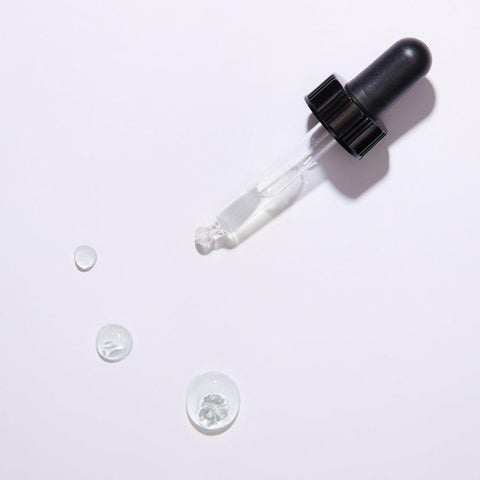
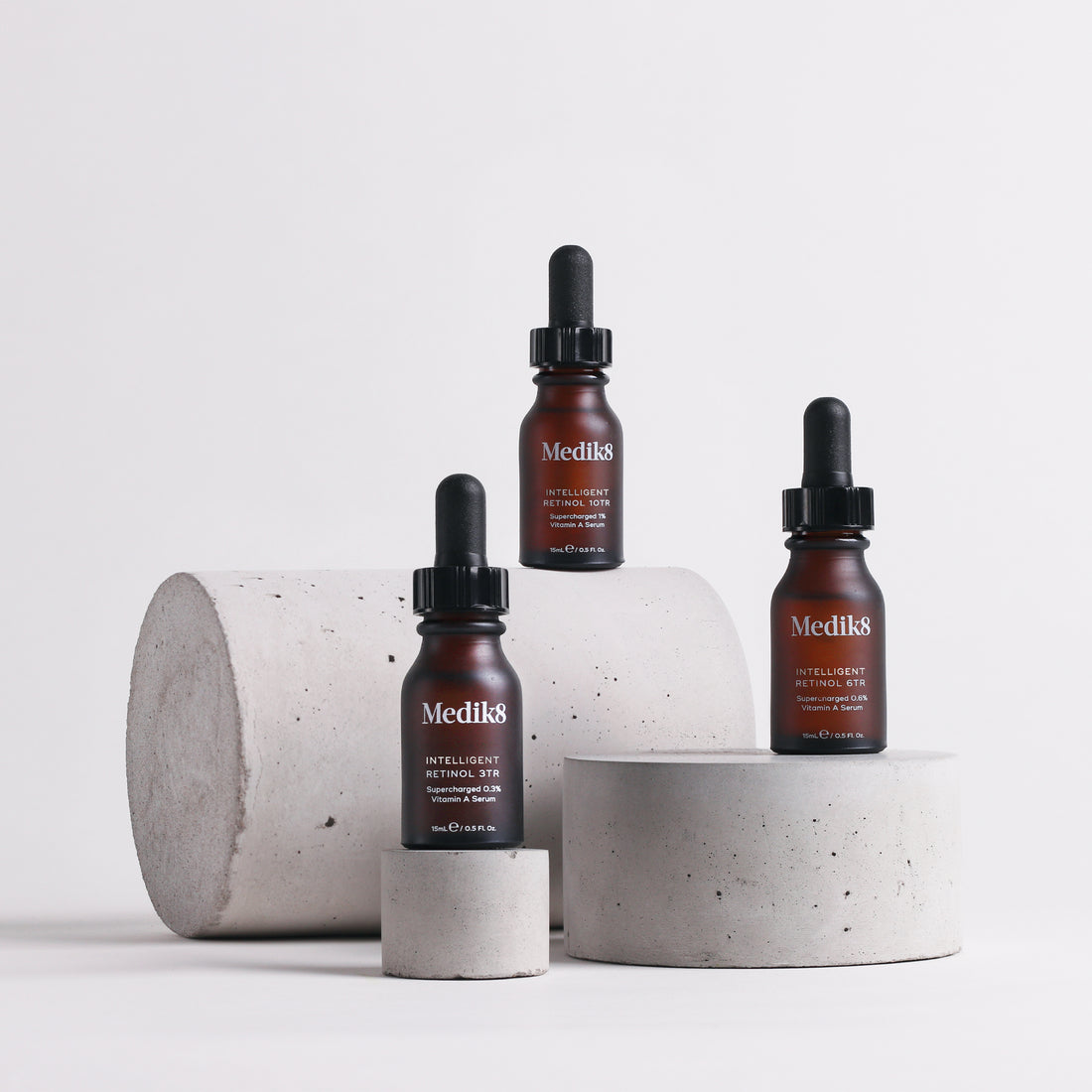
6. Avoid excessive application
To avoid overloading your skin with too much of your chosen vitamin A product and potentially exacerbating symptoms associated with dry skin, make sure that you’re following the how to use guidelines.
Intelligent Retinol serums:
After cleansing in the evening, massage 4 drops across the face, neck and décolletage.
Crystal Retinal:
After cleansing in the evening, apply 2 pumps of Crystal Retinal to the face, neck and décolletage.
7. Always wear sunscreen
Vitamin A can increase your skin’s sensitivity to sunlight. Therefore, it is very important that you wear sunscreen the following morning to protect your skin against the damaging and ageing effects of UV rays.
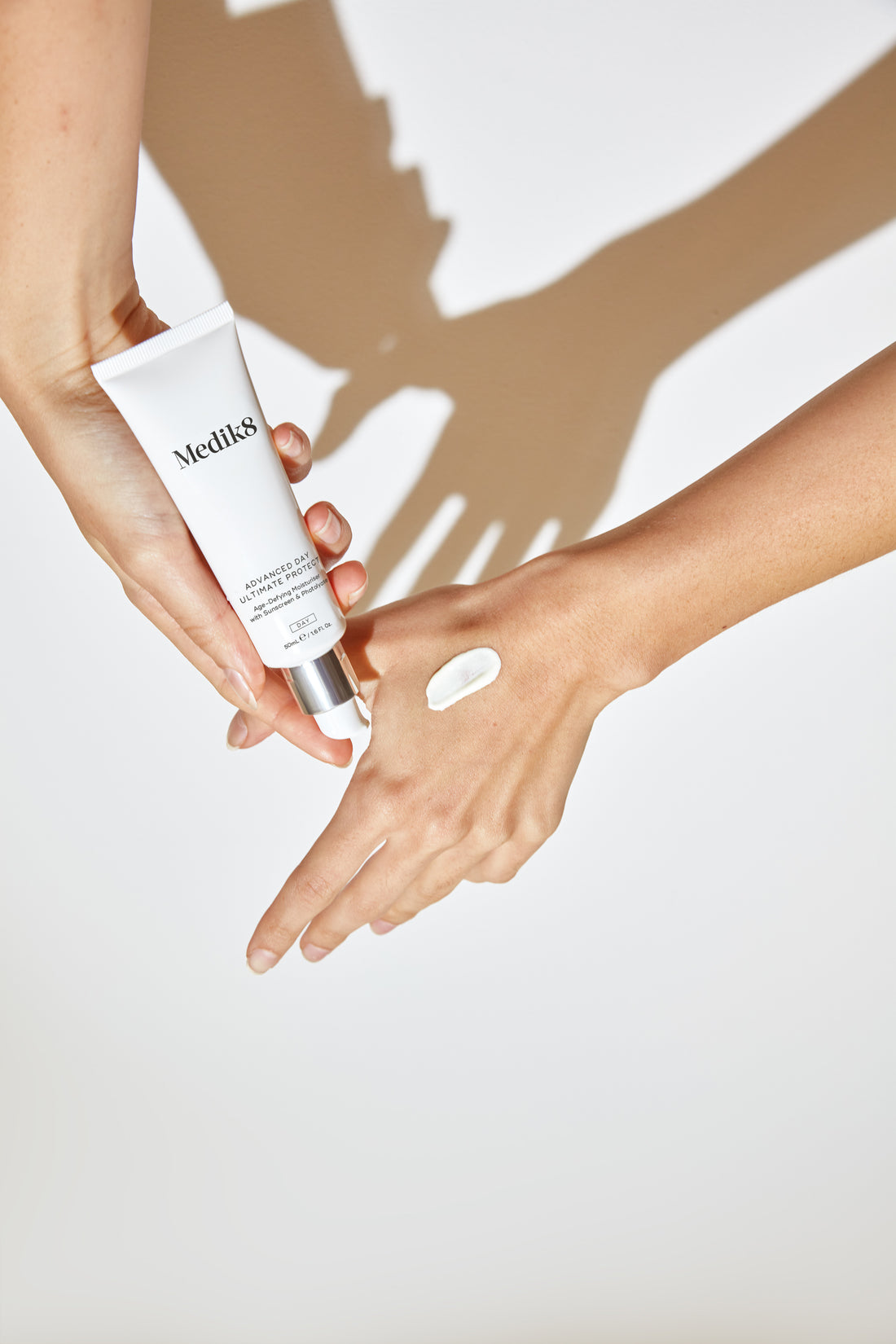
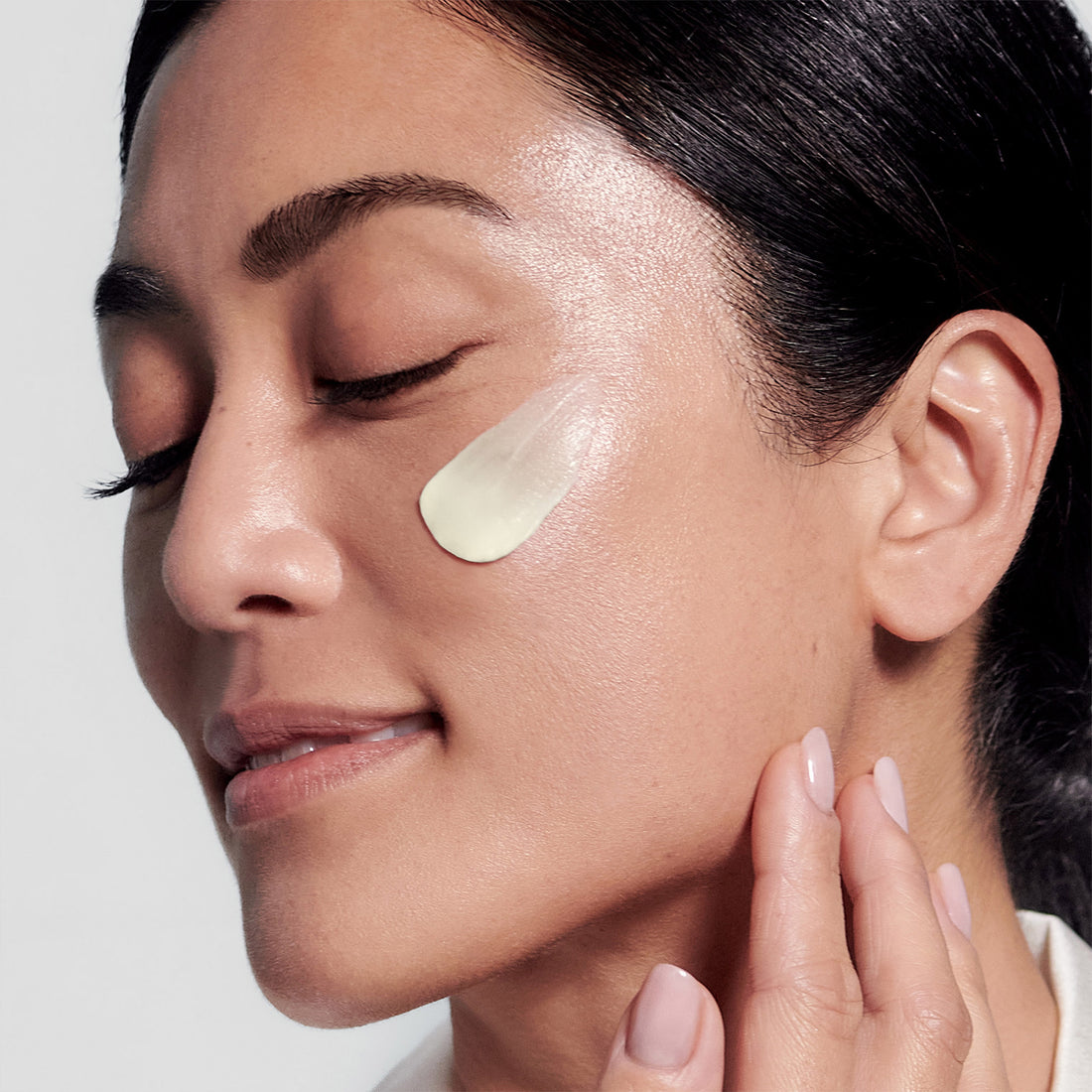
8. Choose a lower strength retinoid
If your chosen retinoid product is causing you to experience dry skin and sensitivity and you have reduced the amount of times you apply the product per week, you could be using a product that contains too high of a strength of vitamin A for your skin to tolerate. If this is the case, try reducing the percentage of your vitamin A product to see if this helps alleviate your dry skin symptoms.
Alternatively, you could try a different retinoid that is better suited for sensitive skin types such as Crystal Retinal.
9. Use retinol at night
Vitamin A is an essential part of our groundbreaking and clinically proven CSA Philosophy, which combines vitamin C plus sunscreen in the morning, and vitamin A at night. We always recommend to apply vitamin A at nighttime as it isn’t a photostable ingredient (it becomes inactive when exposed to sunlight). The only exception to this is r-Retinoate Day & Night serum, which contains retinyl retinoate - a photostable derivative of vitamin A that doesn’t lose its power when exposed to sunlight. Meaning that it can be used in both your morning and evening routine.
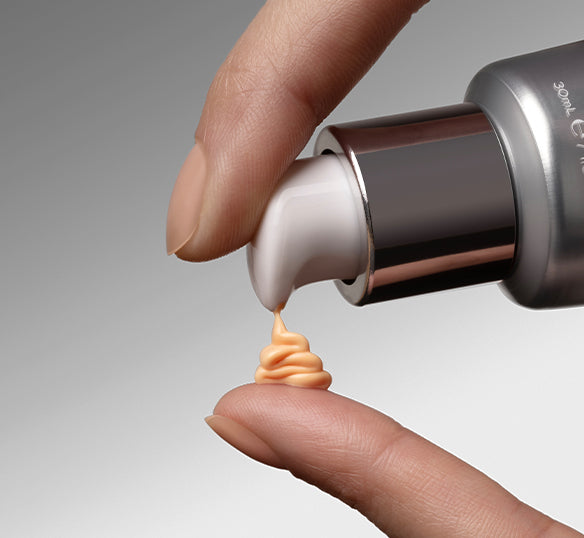
Retinol alternatives for dry skin
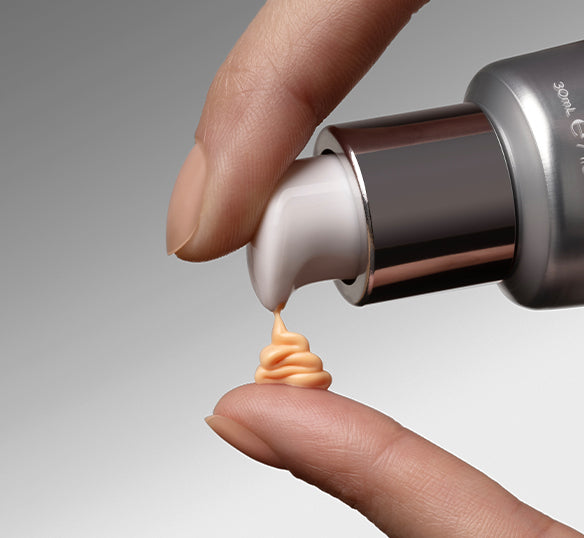
Retinal
Retinal is an unstable molecule, which is why it needs to be stabilised to protect it from losing its potency. As part of our unique and innovative stability complex, we encapsulate the retinal which ensures that the molecule’s power is preserved, but that it is also slowly released into the skin throughout the night which, therefore, helps minimise the risk of irritation. For this reason, retinal is better-suited to those with dry, sensitive skin.
Furthermore, our Crystal Retinal serum contains the addition of hydrating ingredients such as hyaluronic acid, vitamin E and glycerin to leave dry complexions feeling hydrated, visibly supple and comfortable.
Bakuchiol
Some people aren’t able to tolerate vitamin A, such as those who are pregnant and/or breastfeeding. Bakuchiol Peptides is our plant-based retinol alternative that offers similar age-defying results. The lightweight and calming serum can be used both day and night to help reduce the appearance of fine lines, wrinkles, uneven skin tone and texture while being suitable for use during pregnancy and breastfeeding.
NOTE: While bakuchiol is generally considered safe to use if you are pregnant or breastfeeding, we always recommend that you consult with your doctor or midwife before introducing it into your routine.
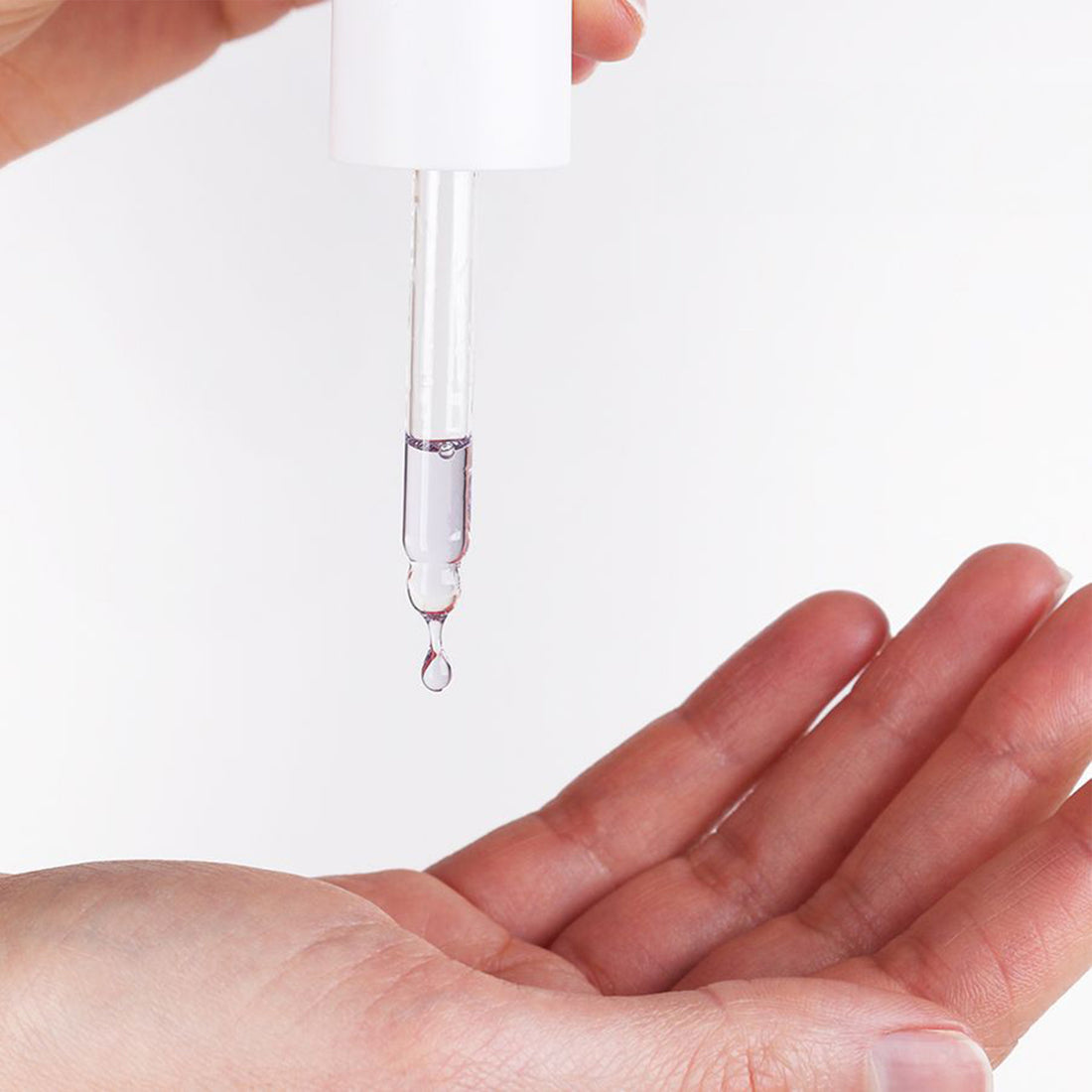
Why do I have dry skin after using retinol?
Retinoids are potent ingredients, therefore it is common to experience some mild dryness when you first begin using them - especially if you already have dry skin. However, if this persists then it is likely that your chosen product isn’t suitable for your skin type, you’re using it too frequently or applying too much.
Medik8’s best retinol products for dry skin
FAQ's
Despite popular belief, you can use retinol on dry skin - just as long as you follow the guidelines on how to use your chosen product. As always, at Medik8 we recommend introducing any vitamin A product slowly into your routine to help minimise the risk of irritation, sensitivity and dryness. Start by using it twice a week for the first 2 weeks, every other night for the next 2 weeks, then every night. Additionally, all of our vitamin A products are enhanced with hydrating ingredients such as hyaluronic acid, squalane and vitamin E to help keep the skin hydrated and comforted during vitamin A use.
It is common to experience some mild dryness when you first introduce vitamin A into your routine. All of our vitamin A products feature our innovative stabilisation and Time Release technology to ensure that the molecule is gradually released into the skin throughout the night - minimising the risk of irritation and dryness. To help prevent any feelings of dryness, we always recommend to follow with a nourishing moisturiser such as Advanced Night Restore. Rich in hydrating and repairing ceramides, they compliment the age-defying properties of retinoids to help keep the skin feeling nourished while avoiding any potential dryness and irritation.
If you apply too much or use too high of a percentage, this could cause your skin to become dry and irritated. You only need to apply a small amount of your chosen vitamin A product for it to be effective on the skin. We always recommend following the guidelines on how to use your product so that you can achieve optimal visible results.
When using our Intelligent Retinol serums or Crystal Retinal, we always recommend that you allow the product to absorb for a minute or so, before following with Advanced Night Restore.
All of our vitamin A products have been expertly designed to be suitable for all skin types. Our favourite vitamin A, Crystal Retinal, is available in a variety of progressive strengths starting at 0.01%-0.2% retinal. Therefore, those with more sensitive skin that is prone to dryness can start on the lowest strength and slowly work their way up the ladder.
Absolutely not. All of our vitamin A products have been expertly formulated to be used all-year-long. As always, when using any vitamin A product it is important that you apply sunscreen the following morning to help keep your skin protected from the sun’s harmful and ageing effects.
As long as you’re using the correct product for your skin type and you’re not applying too much, you shouldn’t experience any dryness when using any of Medik8’s vitamin A products.
[1]G. Siegenthaler et al., Retinol and retinal metabolism, Biochemical Journal, 1990, 268, pp 371-378
